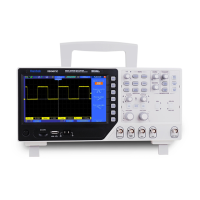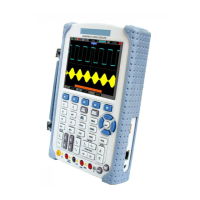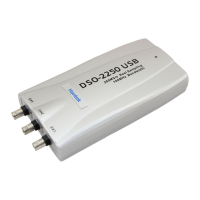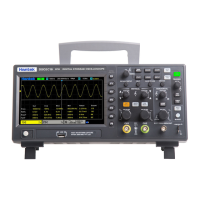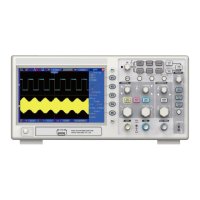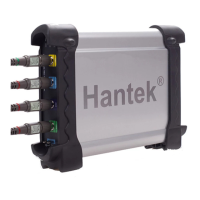Specifications
DSO4000 Series Digital Storage Oscilloscope 72
Trigger when < (Less than), > (Greater than), = (Equal), or ≠ (Not Equal);
Positive slope or Negative slope
Equal: The oscilloscope triggers when the waveform slope is equal to
the set slope.
Not Equal: The oscilloscope triggers when the waveform slope is not
equal to the set slope.
Less than: The oscilloscope triggers when the waveform slope is less
than the set slope.
Greater than: The oscilloscope triggers when the waveform slope is
greater than the set slope.
Selectable from 20ns to 10s
The leading edge: Rising edge or Falling edge; Time Setting: 20-10s
Internal Trigger: Edge, Pulse Width, Video, Slope
Internal Trigger: Edge, Pulse Width, Video, Slope
Trigger Frequency
Counter
±30ppm (including all frequency reference errors and ±1 count errors)
AC coupled, from 4Hz minimum to rated bandwidth
Pulse Width or Edge Trigger modes: all available trigger sources
The Frequency Counter measures trigger source at all times, including
when the oscilloscope acquisition pauses due to changes in the run
status, or acquisition of a single shot event has completed.
Pulse Width Trigger mode: The oscilloscope counts pulses of significant
magnitude inside the 1s measurement window that qualify as triggerable
events, such as narrow pulses in a PWM pulse train if set to < mode and
the width is set to a relatively small time.
Edge Trigger mode: The oscilloscope counts all edges of sufficient
magnitude and correct polarity.
Video Trigger mode: The Frequency Counter does not work.
Normal, Peak Detect, and Average
Acquisition Rate,
typical
Up to 2000 waveforms per second per channel (Normal acquisition
mode, no measurement)
Upon single acquisition on all channels
simultaneously
After N acquisitions on all channels simultaneously,
N can be set to 4, 8, 16, 32, 64 or 128
